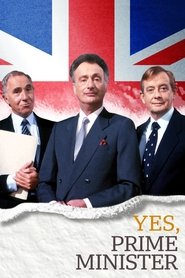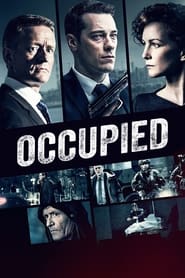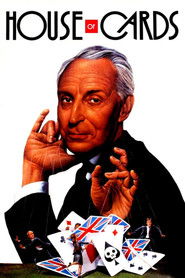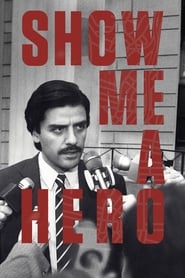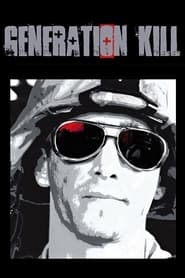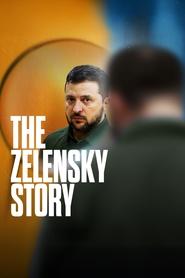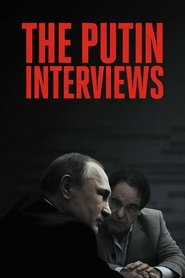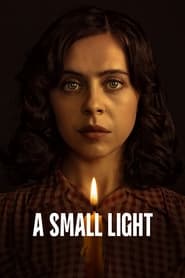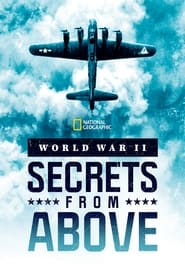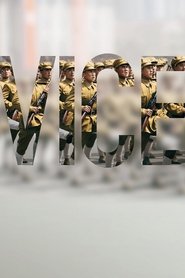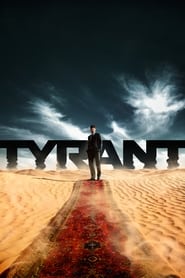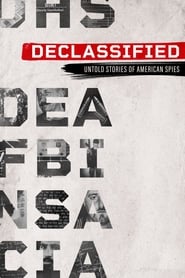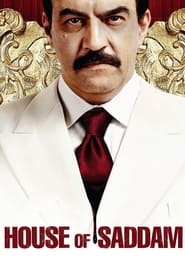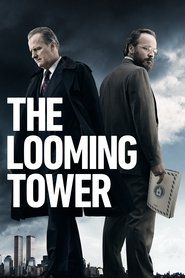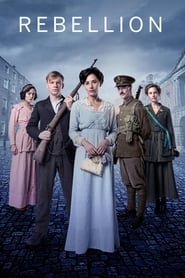Popular War Politics TV Series on Google Play Movies - Page 3
-
Yes, Prime Minister
1986
Yes, Prime Minister
1986
star 8.4James Hacker MP the Government's bumbling minister for Administrative Affairs is propelled along the corridors of power to the very pinnacle of politics - No. 10. Could this have possibly have been managed by his trusted Permanent Private Secretary, the formidably political Sir Humphrey Appleby who must move to the “Top Job” in Downing Street to support him, together with his much put upon PPS Bernard Wolley. What could possibly go wrong? -
Occupied
2015
Occupied
2015
star 7.1In the near future, Norway is occupied by Russia on behalf of the European Union, due to the fact that the newly elected environmental friendly Norwegian government has stopped the all important oil- and gas-production in the North Sea. -
The White Princess
2017
The White Princess
2017
star 7.8The story of Elizabeth of York, the White Queen's daughter, and her marriage to the Lancaster victor, Henry VII. Based on the Philippa Gregory book of the same name. -
House of Cards
1990
House of Cards
1990
star 8.1Frustrated at a new moderate Conservative government and deprived of a promotion to a senior position, chief whip Francis Urquhart prepares a meticulous plot to bring down the Prime Minister then to take his place. -
Show Me a Hero
2015
Show Me a Hero
2015
star 7Mayor Nick Wasicsko took office in 1987 during Yonkers' worst crisis when federal courts ordered public housing to be built in the white, middle class side of town, dividing the city in a bitter battle fueled by fear, racism, murder and politics. -
Generation Kill
2008
Generation Kill
2008
star 7.9The first 40 days of the war in Iraq as seen through the eyes of an elite group of U.S. Marines who spearheaded the invasion along with an embedded Rolling Stone reporter. A vivid account of the soldiers and of the forces that guided them in an often-improvised initiative. -
America: Facts vs. Fiction
2013
star 6.1History as we generally know it is full of holes or half-truths, and a mother lode of juicy details have been lost, distorted, covered up or simply ignored along the way. Former Naval officer and actor Jamie Kaler is on a mission to set the record straight on the most familiar and beloved stories from our nation's and military's past, filling in the blanks, debunking the occasional myth, and exploring why we sometimes get our own history, well, slightly wrong -
The Zelensky Story
2024
The Zelensky Story
2024
star 9Follow Zelensky’s journey from a young actor and entertainer to one of the most recognisable leaders on the planet, presiding over a nation at war with Putin’s Russia. -
The Putin Interviews
2017
The Putin Interviews
2017
star 6.6A revealing series of interviews between renowned filmmaker Oliver Stone and Vladimir Putin in which the Russian President speaks candidly on the US Election, Trump, Syria, Snowden and more. -
A Small Light
2023
A Small Light
2023
star 7.9Twentysomething Miep Gies didn't hesitate when her boss Otto Frank came to her and asked her to hide his family from the Nazis during World War II. For the next two years, Miep, her husband Jan, and the other helpers watched over the eight souls in hiding in the Secret Annex. And it was Miep who found Anne’s Diary and kept it safe so Otto, the only one of the eight who survived, could later share it with the world as one of the most powerful accounts of the Holocaust. -
World War II: Secrets from Above
2022
star 6.7As we fly above the infamous battle sites of D-Day and Dunkirk, soar over hidden Nazi bunkers, and glide across lost battleships and sunken shipwrecks – this new series exposes secrets of World War Two - in a brand-new way. -
VICE
2013
VICE
2013
star 7A documentary news series with a taboo-breaking team who deliver incredible news stories from around the world. -
Tyrant
2014
Tyrant
2014
star 6.7The story of an unassuming American family drawn into the workings of a turbulent Middle Eastern nation. Bassam "Barry" Al Fayeed, the younger son of the dictator of a war-torn nation, ends a self-imposed 20-year exile to return to his homeland, accompanied by his American wife and children, for his nephew's wedding. Barry’s reluctant homecoming leads to a dramatic clash of cultures as he is thrown back into the familial and national politics of his youth. -
Declassified: Untold Stories of American Spies
2016
star 6.3Explore the true stories of America's covert operations told firsthand by the agents who lived it, while getting unprecedented access to the riveting and secret world of espionage. -
The Loudest Voice
2019
The Loudest Voice
2019
star 7.4The rise and fall of Fox News founder Roger Ailes, focusing primarily on the past decade in which Ailes arguably became the Republican Party’s de facto leader, while flashing back to defining events in his life. -
House of Saddam
2008
House of Saddam
2008
star 6.8The intimate world of Saddam Hussein and his closest inner circle is in this gripping four-part drama that charts the rise and fall of one of the most significant political figures in recent history. -
The Looming Tower
2018
The Looming Tower
2018
star 7.3While Osama bin Laden and Al-Qaeda become a global threat, the rivalry between the CIA and FBI inadvertently sets the stage for the tragedy of 9/11 and the Iraq War. -
Boss
2011
Boss
2011
star 7.2Boss is an American political drama television serial created by Farhad Safinia. The series stars Kelsey Grammer as Tom Kane, the mayor of Chicago, who has recently been diagnosed with dementia with Lewy bodies, a degenerative neurological disorder. -
Pearson
2019
Pearson
2019
star 7.3Powerhouse lawyer Jessica Pearson adjusts to the dirty world of Chicago politics. -
Rebellion
2016
Rebellion
2016
star 7A group of young men and women in Dublin in 1916 are embroiled in a fight for independence during the Easter Rising. The story begins with the outbreak of World War I. As expectations of a short and glorious campaign are dashed, social stability is eroded and Irish nationalism comes to the fore. The tumultuous events that follow are seen through the eyes of a group of friends from Dublin, Belfast and London as they play vital and conflicting roles in the narrative of Ireland's independence.
 Netflix
Netflix
 Amazon Prime Video
Amazon Prime Video
 Apple iTunes
Apple iTunes
 Apple TV Plus
Apple TV Plus
 Disney Plus
Disney Plus
 Google Play Movies
Google Play Movies
 Paramount Plus
Paramount Plus
 Hulu
Hulu
 HBO Max
HBO Max
 YouTube
YouTube
 fuboTV
fuboTV
 Peacock
Peacock
 Peacock Premium
Peacock Premium
 Amazon Video
Amazon Video
 The Roku Channel
The Roku Channel
 AMC+
AMC+
 Kocowa
Kocowa
 Hoopla
Hoopla
 The CW
The CW
 Vudu
Vudu
 Starz
Starz
 Showtime
Showtime
 PBS
PBS
 Pantaflix
Pantaflix
 FXNow
FXNow
 Tubi TV
Tubi TV
 Kanopy
Kanopy
 Comedy Central
Comedy Central
 Crunchyroll
Crunchyroll
 Microsoft Store
Microsoft Store
 Redbox
Redbox
 Sun Nxt
Sun Nxt
 ABC
ABC
 DIRECTV
DIRECTV
 Crackle
Crackle
 Fandor
Fandor
 Plex
Plex
